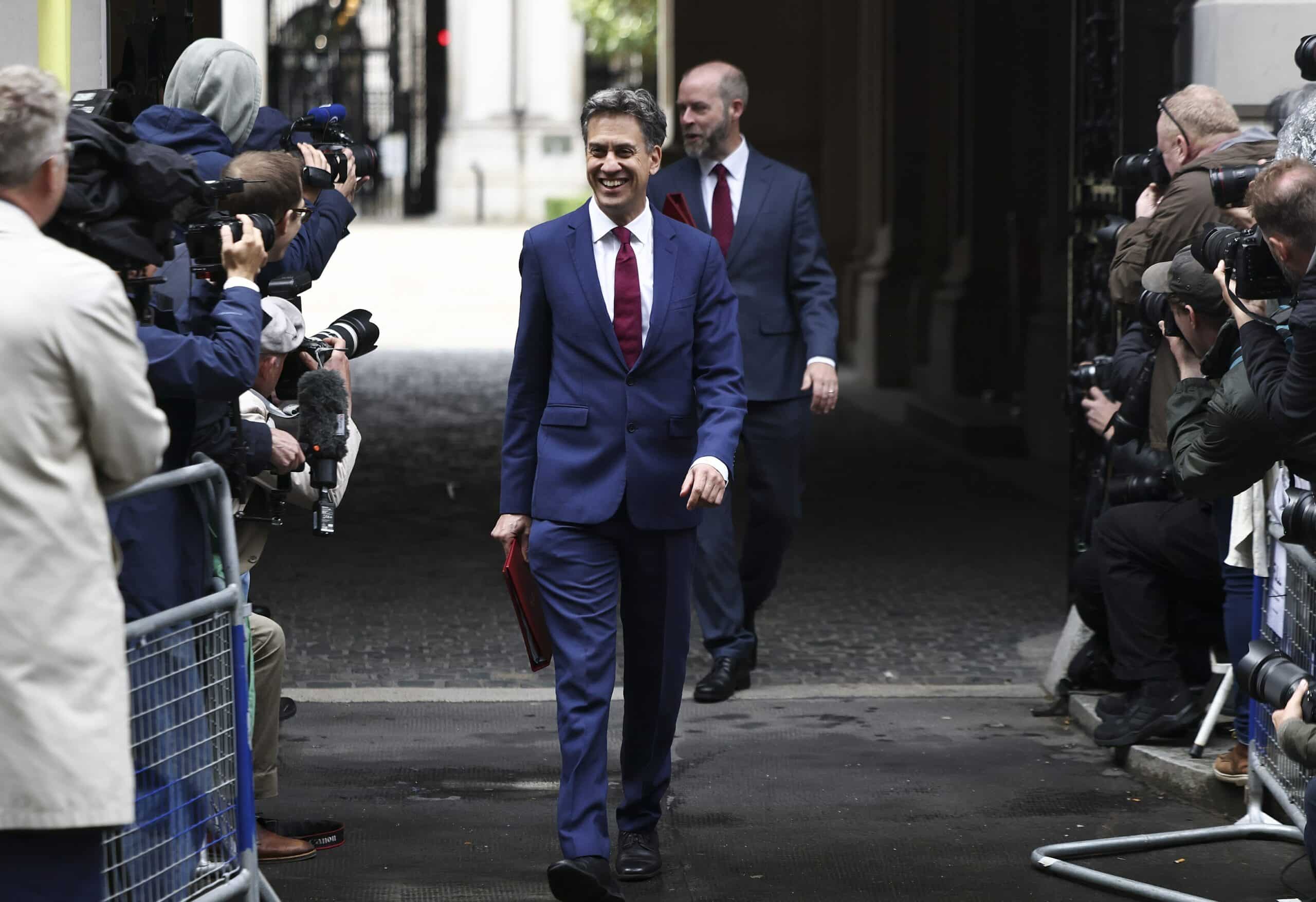 BBC News
BBC NewsBorrowing was £17.4bn last month, the second highest October figure since monthly records began in 1993.

Dinesh Dhamija presents the opportunities presented for the new UK Government to take a climate leadership role on the international stage.
Marking a sharp deviation from the climate scepticism of the outgoing UK Conservative government, which disavowed environmental action, the new Labour administration has released ambitious green targets, with its eye on global leadership.
This week the energy secretary Ed Miliband announced a £1.5 billion auction of renewable energy projects, sufficient to power 11 million homes, including 90 new solar farms with a capacity of 3.3GW and 20 new onshore windfarms. To attract bidders, the government had to face down opposition from local communities, who had hobbled the Conservatives’ renewable energy plans. Three major new solar farms have already gained approval, all of them in the east of England, in Lincolnshire, Rutland, and the Suffolk-Cambridgeshire borders.
These projects are an initial step towards the tripling of UK solar power promised by the government, alongside its pledge to double onshore and quadruple offshore wind generating capacity. At the same time, solar-based generation across the UK is rising rapidly: it reached 2 terawatt hours per month for the first time in June 2024 and produced around 25 per cent more electricity this summer than in the same period of 2023. Rather than pandering to the oil lobby or appeasing NIMBYs, the Starmer administration hopes to show global leadership on climate action. Ed Miliband will attend Cop29 in Azerbaijan later this year, then host a 2025 conference with the International Energy Agency.
Energy activists such as Harjeet Singh of the Fossil Fuel Non-Proliferation Treaty Initiative have urged the government to act decisively by announcing a new ‘nationally determined contribution [NDC]’ – the official term for an emissions reduction plan. “The UK has a critical opportunity to set the bar for climate leadership and equity by announcing a robust NDC,” he said.
Climate experts point out that, with the United States in the throes of an election, and France and Germany both in political limbo, the UK can step up and demonstrate leadership. “It would be good to see the UK including its fossil fuels phase-out commitment within its NDC,” added Singh. “This would show the way for others to follow.”
Energy secretary Ed Miliband has already visited Brazil, current president of the G20 group of developed nations and host of Cop30 in 2025. These initiatives are important for the future of renewable energy and the fight against climate change. I’m pleased to see the Labour government grasping the nettle early in its tenure, while it enjoys a large parliamentary majority and can ignore sniping from the sidelines.
It’s too early to claim any kind of breakthrough or tipping point from this government, but it’s good to see evidence of its direction of travel towards a greater climate leadership role. Long may it continue.
Dinesh Dhamija founded, built and sold online travel agency ebookers.com, before serving as a Member of the European Parliament. Since then, he has created the largest solar PV and hydrogen businesses in Romania. Dinesh’s latest book is The Indian Century – buy it from Amazon at https://www.amazon.co.uk/dp/1738441407/